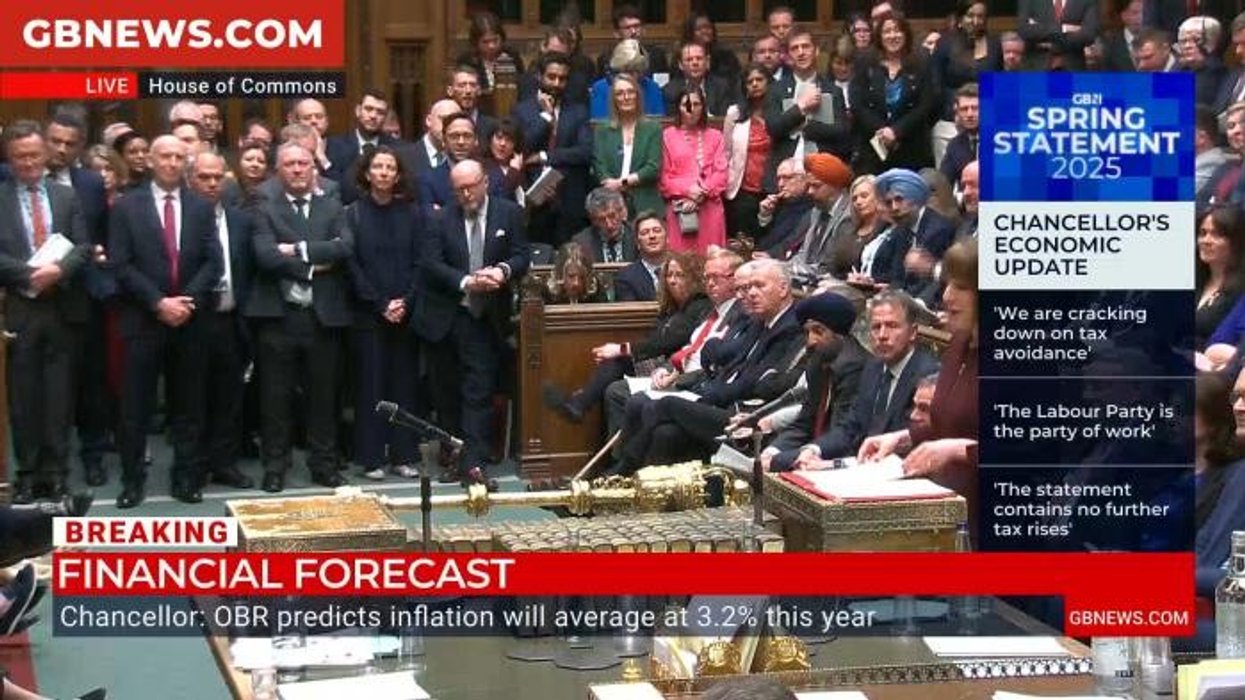Mortgage rules under review as regulator floats return of 'ticking timebomb' loans to ease affordability

Rachel Reeves on Labour's plans for housing |
GBNEWS

Relaxed lending rules could help millions locked out of the housing market since the financial crisis
Don't Miss
Most Read
Latest
Millions of homebuyers could soon face a major shift in the way banks assess their mortgage applications.
A controversial lending option once deemed too risky is now back in the spotlight.
The Financial Conduct Authority is exploring whether to ease restrictions on interest-only mortgages, products it once labelled a "ticking timebomb", as part of efforts to boost home ownership.
In a discussion paper on the mortgage market's future, the FCA said it would like to hear views on "whether our rules could better support more interest‑only mortgages".
The regulator stated: "Interest‑only mortgages could be suitable for consumers who may struggle to afford a repayment mortgage and can support sustainable home ownership."
This shift comes as the Government, pursuing economic growth and increased homeownership targets, has encouraged the FCA to press banks to relax lending rules.

Mortgage rules under review as regulator floats return of 'ticking timebomb' loans
| GETTYThe move marks a potential reversal for products that nearly vanished after the 2007-08 financial crisis.
Generation Home has already moved ahead with new interest-only offerings aimed at first-time buyers, requiring at least a 20 per cent deposit and a minimum income of £50,000.
Borrowers must demonstrate their repayment strategy, such as proving they can save the difference between monthly repayment mortgage costs and their interest-only payments.
The specialist lender also offers first-time buyers loans with just five per cent deposits on a part interest-only, part repayment basis.
Generation Home said this type of deal "can spell the difference between staying locked in the rental cycle or accessing home ownership and building meaningful wealth over time".
The lender announced the staged launch of its new interest-only products earlier this week, positioning them as a solution for buyers struggling with affordability.
Research by the Building Societies Association reveals that 2.2 million "missing" first-time buyers should have purchased homes since the financial crisis but have been unable to do so.
These potential buyers have struggled either to save deposits or borrow sufficient amounts under current lending restrictions.
The Government's response has been to prompt the FCA to encourage banks to relax lending rules as part of its drive for economic growth and increased homeownership.
 Britons are concerned about rising mortgage costs | GETTY
Britons are concerned about rising mortgage costs | GETTY In the past three months, nearly all high street banks have reduced the interest rate at which they "stress test" borrowers.
These stress tests assess whether borrowers could afford payments if rates increased dramatically.
Many lenders have also started making borrowing easier for first-time buyers, with some now lending up to seven times salary rather than the standard 4.5 times limit.
Interest-only mortgages comprised 39 per cent of regulated mortgage sales in 2007 but plummeted to just 4.5 per cent in 2024, according to FCA data.
The dramatic decline followed the regulator's predecessor officially labelling them "high-risk" in 2009, with the FCA calling them a "ticking timebomb" in 2012.

The FCA now suggests these mortgages "can be a flexible way for consumers to engage with the property market"
| GETTYCurrently, these loans are primarily used by buy-to-let landlords and niche professionals including barristers, accountants, investment bankers and vets.
The FCA now suggests these mortgages "can be a flexible way for consumers to engage with the property market".
The regulator said it could "explore circumstances in which borrowers could more easily shift between repayment and interest‑only during the mortgage term without having to set up a repayment vehicle".
With fully interest-only mortgages, borrowers pay only the interest on their home loan, "substantially reducing the contractual monthly payment and potentially making the mortgage more affordable", the FCA noted.
More From GB News










